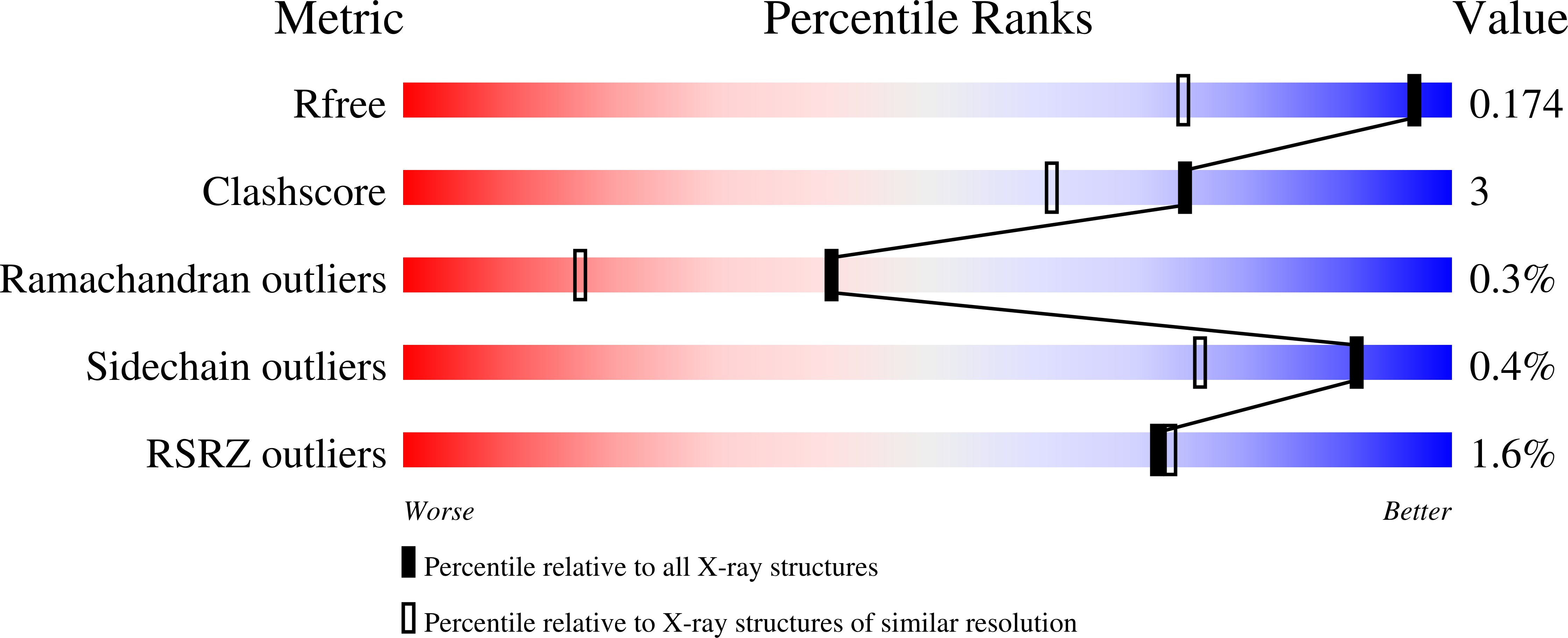Bispecific repurposed medicines targeting the viral and immunological arms of COVID-19.
Redhead, M.A., Owen, C.D., Brewitz, L., Collette, A.H., Lukacik, P., Strain-Damerell, C., Robinson, S.W., Collins, P.M., Schafer, P., Swindells, M., Radoux, C.J., Hopkins, I.N., Fearon, D., Douangamath, A., von Delft, F., Malla, T.R., Vangeel, L., Vercruysse, T., Thibaut, J., Leyssen, P., Nguyen, T.T., Hull, M., Tumber, A., Hallett, D.J., Schofield, C.J., Stuart, D.I., Hopkins, A.L., Walsh, M.A.(2021) Sci Rep 11: 13208-13208
- PubMed: 34168183
- DOI: https://doi.org/10.1038/s41598-021-92416-4
- Primary Citation of Related Structures:
7AEG, 7AEH - PubMed Abstract:
Effective agents to treat coronavirus infection are urgently required, not only to treat COVID-19, but to prepare for future outbreaks. Repurposed anti-virals such as remdesivir and human anti-inflammatories such as barcitinib have received emergency approval but their overall benefits remain unclear. Vaccines are the most promising prospect for COVID-19, but will need to be redeveloped for any future coronavirus outbreak. Protecting against future outbreaks requires the identification of targets that are conserved between coronavirus strains and amenable to drug discovery. Two such targets are the main protease (M pro ) and the papain-like protease (PL pro ) which are essential for the coronavirus replication cycle. We describe the discovery of two non-antiviral therapeutic agents, the caspase-1 inhibitor SDZ 224015 and Tarloxotinib that target M pro and PL pro , respectively. These were identified through extensive experimental screens of the drug repurposing ReFRAME library of 12,000 therapeutic agents. The caspase-1 inhibitor SDZ 224015, was found to be a potent irreversible inhibitor of M pro (IC 50 30 nM) while Tarloxotinib, a clinical stage epidermal growth factor receptor inhibitor, is a sub micromolar inhibitor of PL pro (IC 50 300 nM, K i 200 nM) and is the first reported PL pro inhibitor with drug-like properties. SDZ 224015 and Tarloxotinib have both undergone safety evaluation in humans and hence are candidates for COVID-19 clinical evaluation.
Organizational Affiliation:
Exscientia, The Schrödinger Building, Oxford Science Park, Oxford, OX4 4GE, UK. mredhead@exscientia.co.uk.




















